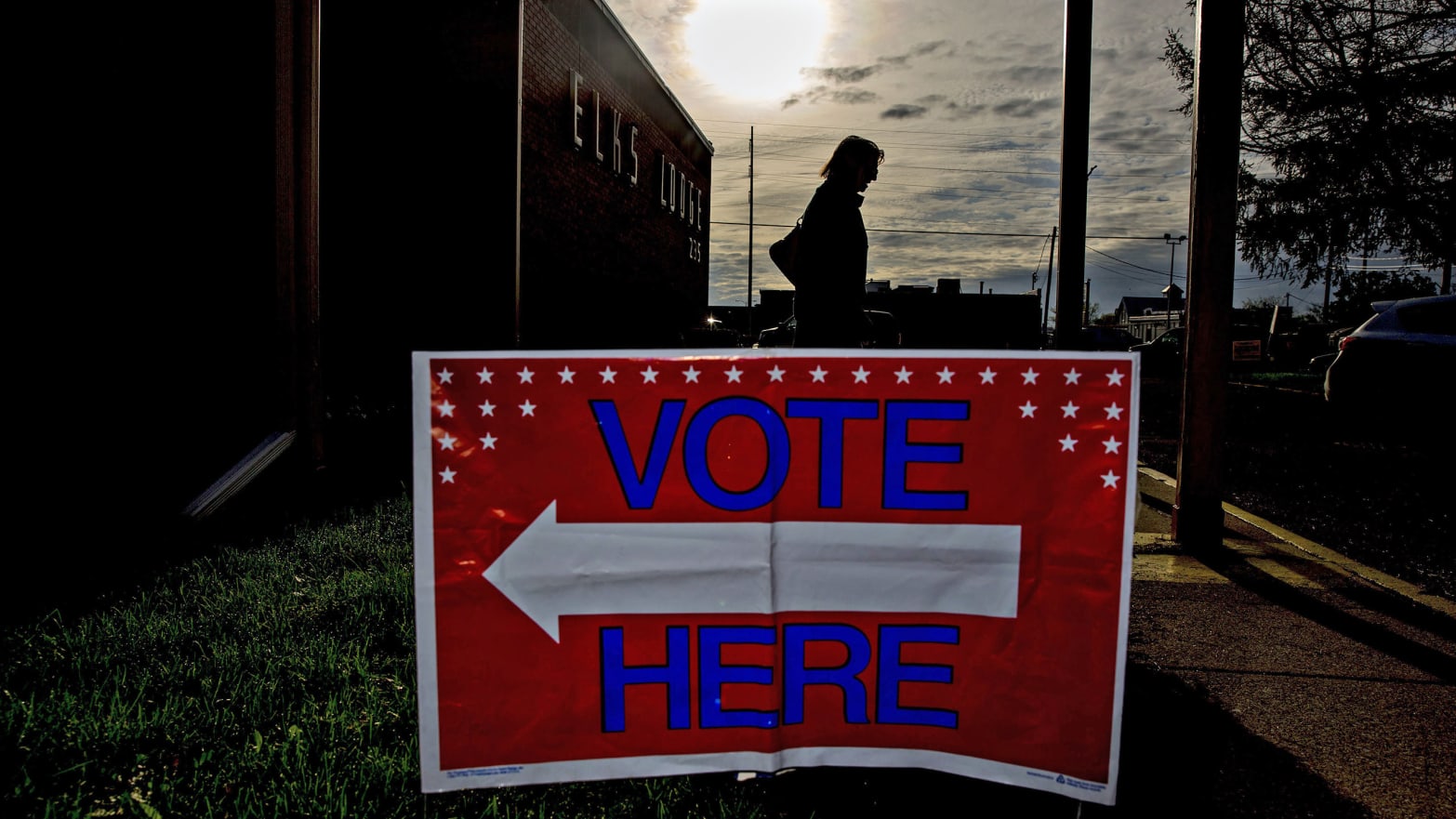You might not be able to cast a vote on Election Day in Indiana, and now the Hoosier State doesn’t even need to let you know.
A new Indiana law permits voters to be automatically removed from registration rolls without giving any notice or allowing for a waiting period for those purged to respond, and it could all be a mistake.
The statute, which went into effect last month, is in “flagrant violation” of the National Voter Registration Act of 1993 and operates with potentially “discriminatory results,” according to the Indiana State Conference of the NAACP and the League of Women Voters in a lawsuit filed last week.
“No Hoosier should be silenced on Election Day,” Barbara Bolling-Williams, president of the Indiana State Conference of the NAACP, said in a statement. “Yet, under this new law, that will happen. It’s vital that Indiana follow federal law and ensure that voters are not wrongfully removed from the rolls.”
The suit takes issue with Indiana’s now-unbridled use of the controversial Kansas-based Interstate Crosscheck System, a database used in 27 states to identify potential voters registered in multiple states by comparing voter names and dates of birth.
Indiana adopted the database in 2014, when it was ushered in by then-Gov. Mike Pence. Officials at that time had to notify voters that they were at risk of being removed from voter rolls. A voter was removed only if they failed to respond and vote in the next election.
Now voters can be immediately removed if their name simply pops up on the database.
Jonathan Brater, a lawyer working on the case and a counsel for the Brennan Center for Justice’s Democracy Program, said this “magnifies the chance that thousands of people will be wrongly removed from the voter rolls.”
“Keeping track of the voter-registration lists and removing people who are ineligible is important, but it’s very important that states use appropriate procedures to do so,” Brater said. “That includes making sure that the sources of potentially ineligible people are reliable.”
The suit claims the database “produces inaccurate results, false positives, and leads to the discriminatory disenfranchisement of many legally registered voters” and disproportionately targets “minority populations where the same or similar last names are more common.”
Brater pointed to Virginia as an example.
That state relied on the database to purge nearly 40,000 voters without prior notice before its 2013 statewide election. Later, it was determined that electoral officials experienced error rates as high as 17 percent.
Indiana is also notorious to voting-rights advocates: It leads all 50 states in terms of percentage of voters purged from its registration rolls, removing 22.4 percent of its voting population between 2012 and 2014, The Indianapolis Star reported. In the first five months after the 2016 election, the state had already removed nearly half a million voters from its lists.
Geoffrey Layman, a professor of American politics at Notre Dame who studies voting behavior, said that while the stated purpose of Indiana’s law may seem “innocuous,” it’s a textbook case of those exploiting “voter fraud” claims for what turns out to be voter suppression.
“When a state controlled by the Republican Party, as Indiana is, starts talking about purging the voting rolls of names of people who are duplicates or don’t have residence here or whatever, it may seem like an obvious thing to do,” Layman said, “but it certainly raises concerns about whether these efforts by Republicans are to kick minority voters, or those who may be more likely to vote Democratic, off the voter rolls.”
Calls to investigate voter fraud have only increased since President Trump claimed he would have won the 2016 popular vote if millions of people had not illegally voted. (No evidence has emerged proving this is true.)
He signed an executive order in May to create a commission that would collect state voter data and assess what he alleges is widespread fraud. Kansas Secretary of State Kris Kobach, whose office runs Crosscheck System, is also the vice chairman of Trump’s election commission.
Last month the commission asked that states relinquish voter information, including names, birth dates, and the last four digits of Social Security numbers, to implement Kobach’s Crosscheck System nationwide. The request faced a backlash from 19 states, including Mississippi, whose Republican secretary of State said Kobach “can go jump in the Gulf of Mexico and Mississippi is a great state to launch from.”
The request raised concerns regarding privacy risks and the potential that pooled voter data would be a target for hackers. Also, the system has been shown to do little to root out voter fraud. An analysis published this year found that more than 99 percent of the matches sent to Iowa officials between 2012 and 2014 were unrelated to attempted voter fraud (PDF). The study also found that Crosscheck “would eliminate about 200 registrations used to cast legitimate votes for every one registration used to cast a double vote.”
“There’s very little evidence of widespread voter fraud,” Notre Dame’s Layman said. “There’s always a little bit here and there and there’s always a handful of cases of people who shouldn’t have been voting, but those are pretty rare. I think the fact that the Republican Party nationwide and in particular states seem to be on this mission to ‘clean up the voting process’ and ‘clean up the voting rolls,’ it seems suspicious when there’s very little evidence of voter fraud.”
And it’s why the NAACP group and the League of Women Voters are fighting so hard to halt Indiana’s move.
“We’re at a time when voter purges are taking on increased importance nationally,” Brater said. “... It’s particularly important right now that states only remove voters from the rolls in a manner that is reasonable and provides voters the protections that are required by law.”
